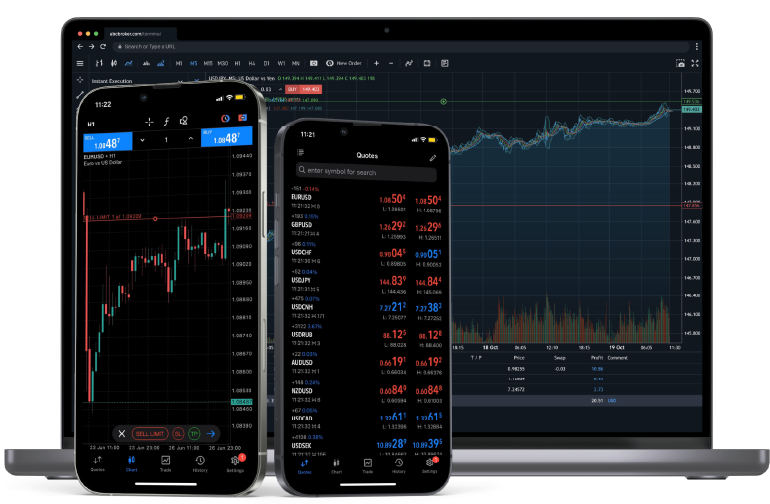- CFDs & Forex Trading | Regulated Online Trading
- About Us
- Trading
- Platforms
- Resources
- Partners
- Research
Search
×

| Symbol | CADCHF |
| Name | Canadian Dollar vs Swiss Franc |
| Quote Currency | CHF |
| Monday Open | 00:05 |
| Friday Close | 23:59 |
| Session Break | 00:00-00:05 |
| Limit and Stop Level | 0 |
| Execution | Market |
| Trading Platform | MT5, Mobile App, WebTrader |
| Sector | Forex |
ZERO Deposit Fees
Choose from multiple (15+) deposit options such as Skrill, Neteller, Visa/Mastercard, Crypto, Local Bank and others with zero fees.
Global Market Access
Trade CFD's (1000+) on a wide range of instruments including Forex, Shares, Commodities, Indices, Precious Metals, Cryptocurrency and Energy.
6 Ways to Trade
Trade when you want and anywhere at your convenience with Windows OS, MacOS, iOS, Android, WebTrader and even Linux.
Sub 30ms Latency Trading
Trades are executed through liquidity engines in LD4 and access servers in Asia, Europe and Africa.
Supports Proprietary Trading
Get access up to $2 million in funded trading for qualified profitable traders on MT5.
24/5 Unparalleled Service
Knowledgable and prompt service available on Live Chat, Email, Phone, Whatsapp and Telegram.
Choose from multiple trading options based on your preference of order types, indicators, charting tools, style of trading and operating environment.

The CADCHF currency pair reflects the exchange rate between the Canadian Dollar and the Swiss Franc. Canada’s economy is significantly influenced by natural resource exports, especially oil, while Switzerland is known for its financial services sector and political neutrality, making the CHF a safe-haven currency.
Commodity Prices:
The value of the Canadian dollar is closely tied to commodity prices, particularly crude oil. As a major oil exporter, Canada’s economic health and the CAD's strength can be significantly impacted by fluctuations in oil prices.
Swiss Economic Stability:
Switzerland's economy is characterized by a robust banking sector and a stable political climate. The Swiss Franc often acts as a safe haven during times of global economic uncertainty.
Monetary Policies:
Decisions made by the Bank of Canada (BoC) and the Swiss National Bank (SNB) regarding interest rates and monetary policy can heavily influence the CADCHF pair.
Global Economic Sentiment:
The pair is sensitive to changes in global economic health.

Navigating the CADCHF pair requires an understanding of both the Canadian and Swiss economies and a close eye on global economic conditions.
Commodity Market Trends
Keeping track of oil prices and other major commodities can provide insights into potential movements of the CAD.
Economic Indicators
Monitoring economic data releases from both countries, such as GDP growth, employment figures, and trade balances, is crucial.
Geopolitical Events
Global geopolitical developments can affect market sentiment, impacting the safe-haven status of the CHF.
Technical Analysis
Utilizing charts, indicators, and historical data patterns can aid in making informed trading decisions for the CADCHF pair.
Start trading CAD/CHF now!
The CAD/CHF pair is influenced by factors such as interest rate differentials between the Bank of Canada and the Swiss National Bank, global oil prices (as Canada is a major oil exporter), and global economic stability (since the CHF is often viewed as a safe-haven currency).
Economic indicators like GDP growth, employment rates, inflation, and trade balances in both Canada and Switzerland can significantly impact the CAD/CHF pair. For example, a stronger economic performance in Canada compared to Switzerland may lead to an appreciation of the CAD against the CHF.
The best times to trade CAD/CHF are typically during the European trading session and when significant economic data is released from either Canada or Switzerland, as these periods often see increased market activity.
Common strategies for trading CAD/CHF include technical analysis, fundamental analysis, and trend following. The choice of strategy should align with the trader’s risk tolerance and market perspective.
Interest rate decisions can have a significant impact on CAD/CHF. If the Bank of Canada raises rates while the Swiss National Bank holds or lowers them, it could lead to a strengthening of the CAD against the CHF, and vice versa.
Since Canada is a major oil exporter, the price of oil can significantly influence CAD/CHF. Higher oil prices generally strengthen the Canadian dollar and can lead to CAD appreciation against the CHF.
Yes, geopolitical events, particularly those impacting the oil market or global economic stability, can significantly affect CAD/CHF. The pair is also sensitive to changes in global risk sentiment.
New traders should be aware of the economic fundamentals of both Canada and Switzerland, monitor key economic releases, and employ prudent risk management strategies. Starting with a small amount is recommended to gain experience when trading with real capital.
Beginner or Advanced? View our full suite of tools and resources to help traders of all levels.
Get started quickly with our free forex trading course for beginners to level up on your trading knowledge.
Evaluate your risk, monitor profit or loss for each trade & estimate trading costs with our full suite of calculators.
Follow high impact news and events for the financial markets including the latest economic data.
Stay up to date with the latest fundamental and technical analysis from the Baxia Markets Analyst team.
Find answers to common questions and topics related to trading with Baxia Markets and the trading platforms.
View our collection of free educational resources to help you become a profitable trader and learn risk management.
More than 1000 CFD instruments to trade on multiple asset classes with one broker.
Forex
Precious Metals
Crypto CFDs
Energy
Indices
Commodities
Shares
BAXIA GLOBAL LIMITED
Join the community
Risk Warning: Margin trading involves a high level of risk, and may not be suitable for all investors. You should carefully consider your objectives, financial situation, needs and level of experience before entering into any margined transactions with Baxia Markets, and seek independent advice if necessary. Forex and CFDs are highly leveraged products which mean both gains and losses are magnified. You should only trade in these products if you fully understand the risks involved and can afford losses without adversely affecting your lifestyle (including the risk of losing the entirety of your initial investment). You must assess and consider them carefully before making any decision about using our products or services.
Baxia Global Limited is a company registered in Seychelles with registration number: 8426970-1, and is regulated by the Financial Services Authority of Seychelles with License number: SD104.
Baxia Limited is a company registered in The Bahamas with registration number: 177330 B, and is licensed and regulated by The Securities Commission of The Bahamas (SCB), (SIA-F234).
The information on this website is general in nature and doesn’t take into account your personal objectives, financial circumstances, or needs. It is not targeted at the general public of any specific country and is not intended for distribution to residents in any jurisdiction where that distribution would be unlawful or contravene regulatory requirements. Baxia Markets does not offer its services to residents of certain jurisdictions such as USA, Cuba, Sudan/Republic of Sudan, Syria, Iran, Iraq, South Sudan, Venezuela, Libya, Belarus, Afghanistan, Myanmar, Russia, Crimea, Donetsk, Luhansk, Palestine, Yemen, Zimbabwe and North Korea.